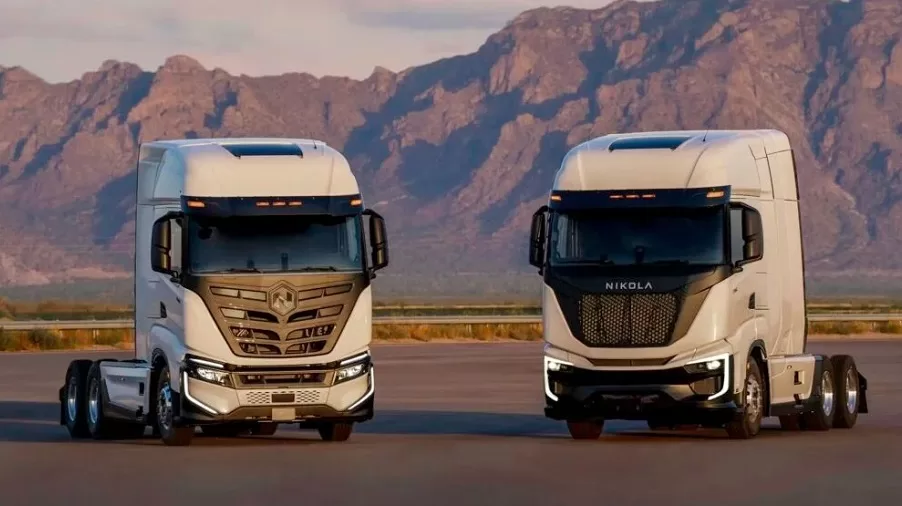Auto
Nikola Files for Chapter 11 Bankruptcy: End of an Electric Dream

- The Nikola Corporation has filed for Chapter 11 bankruptcy and expects to liquidate all of its assets as it continues to face financial issues and managerial challenges.
- The company’s demise is the result of legal disputes involving its creator, Trevor Milton, as well as dwindling demand for electric trucks.
Nikola Corporation, that manufacturer of electric vehicles (EV) once heralded as a disruptive force for sustainable transport, filed for Chapter 11 bankruptcy protection. This decision comes after a stormy period since its early days, characterized by excessive cash burn, leadership shuffles, and capital struggles. The company is now announcing that it intends to explore the sale of all or substantially all of its assets to maximise value and ensure an orderly wind-down.
The Rise and Fall of Nikola Corporation
Founded 10 years ago in Phoenix, Arizona, Nikola went public in June 2020 in the now-famous euphoria made for electric and hydrogen vehicles. It delivered its first vehicle in December 2021, thus setting itself up as a pioneer in the EV scenario. However, the beginning of the company has proved to be anything but smooth.
Nikola’s downfall is the same story told for other EV start-ups from the pandemic era: Fisker, Proterra, and Lordstown Motors all went public and flourished under the auspices of promising to change the automotive industry, but dwindling demand, high interest rates, and funding shortages have since plagued them.
Legal Controversies and Leadership Turmoil
Legal issues surrounding its founder, Trevor Milton, compounded the company’s woes. Milton was found guilty of securities and wire fraud charges by a New York jury in October 2022. United States prosecutors. The Southern District of New York Attorney’s Office accused Milton of making false and deceptive statements about the company’s electric and hydrogen-powered trucks.
One of the main cases is the Nikola One, a hydrogen-powered semi-truck prototype that Milton claimed was fully functional. Prosecutors disclosed that it was missing some essential components, including motors and a control system. In a deceptive promotional video on X (formerly Twitter), the truck appeared to cruise down a road. It was a ruse intended to trick investors: the truck was rolling downhill after being towed to the top of a hill.
His actions have, however, led to his 2023 sentencing with a four-year prison term for swindling investors. His downfall further shaded the credibility of Nikola, thereby complicating its financial problems.
Challenges in Financing and The Markets
Nikola has tried to recover, but it has faced some harsh financial constraints. It has been reported by way of a court filing that the company had assets between $500 million and $1 billion, while its liabilities fell in the range of $1 billion to $10 billion. In 2024, Nikola was preparing to double the production rate of hydrogen-powered fuel-cell electric trucks but constantly struggled with severe cash shortages. It lost hundreds of thousands of dollars on every vehicle sold, which made it difficult for the company to operate.
One of the key problems for Nikola and the rest of the EV manufacturers was getting the cooperation of the fleet operators in investing in charging infrastructure; high interest rates clouded the budgets, which in another way limited the interest in electric trucks.
Transitions in Leadership and About-faces in Strategy
No sooner was it out of the frying pan than Nikola found itself in the fire: four CEOs in four years. The final appointment was made last August for the illustrious 55-year-old Stephen Girsky. After a past stint with Morgan Stanley as an analyst, Girsky later became a part of the team at General Motors and moved on to become the senior senator from Michigan, where he was instrumental in taking Nikola public via his special purpose acquisition company (SPAC), VectoIQ Acquisition Corp.
Nikola continued running some truck activities and hydrogen-fuelling activities through March 2025 under this new leadership. However, it currently reflects a new initiative by the company, kick-starting that sale process, indicating a struggle for long-term financial stability.
Decline Impact on the EV Industry
Everything about the bankruptcy file against Nikola further bears witness to the condition faced by the fledgling and new companies entering the electric vehicle space under one of the stiffest competitive environments against which capital is so expensive. The rise and fall of the company provide cautionary tales to the other manufacturers in the different complexities of undertaking funding, keeping investors defiantly confident, and scaling into production.
More so, the EV industry is undergoing some changes along the lines of new technological advancement and growing environmental concerns. On the other hand, Nikola emphasises sustainability in financial management, transparent leadership, and realistic timelines for developing products.
What Comes Next for Nikola?
With the asset sale process in motion, Nikola’s success will define the legacy of Nikola in the electric vehicle market. The company finds itself still in the truck and hydrogen-fuelling business, which gives stakeholders some hope, but the road ahead remains along any reasonable path of expectation.
Nikola’s bankruptcy puts an end to the much-talked-about ambitious chapter in the EV revolution. The bankruptcy also brings to focus the questions regarding the extended prospects of startups with the capacity for disruptive innovation but without any concrete financial underpinning. The developments in the electric vehicle industry today remind everyone how conspicuous the challenges are to bring audacious dreams into reality faced by Nikola.
Final Thought
The hyped electric vehicle company has gone bankrupt. Thus the case of Nikola is historic when it comes to the ascent and fall of a company in the electric vehicle industry in particular and in determining the roadmap of potentially capital-intensive businesses generally, which comes from unfulfilled promises by the leadership. The company will continue with the electrifying story through its Chapter 11 proceedings, and one can expect the impact on the EV sector to unfold as lessons from this drama are taught to future entrants into that arena.

















































